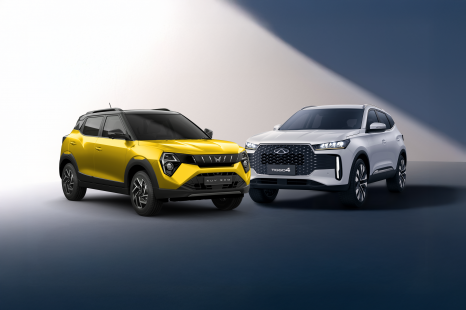

Andrew Maclean
2025 Mahindra XUV 3X0 vs Chery Tiggo 4: Spec battle
1 Month Ago
The Mahindra XUV700 Black Edition isn't your usual black-pack special. The medium SUV adds a range of unique extras and retains sharp pricing.
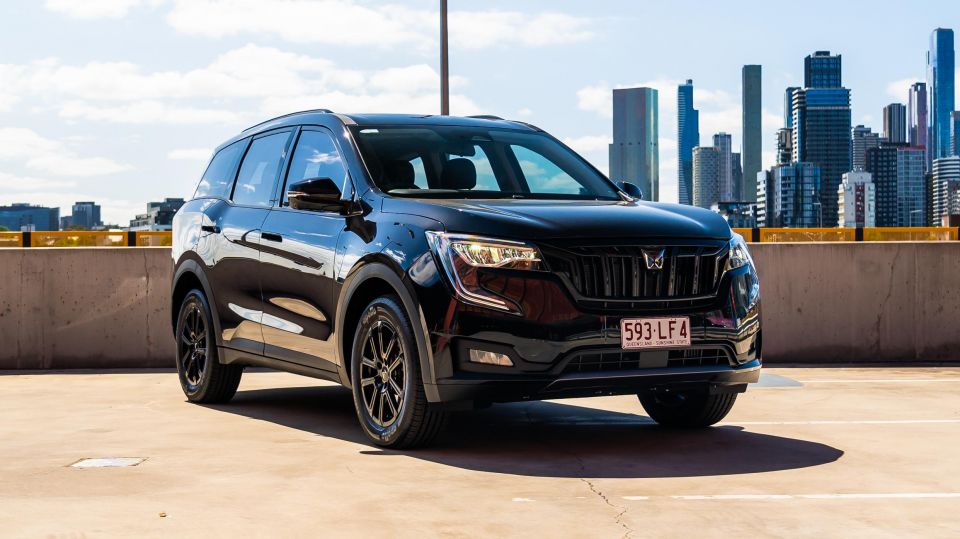
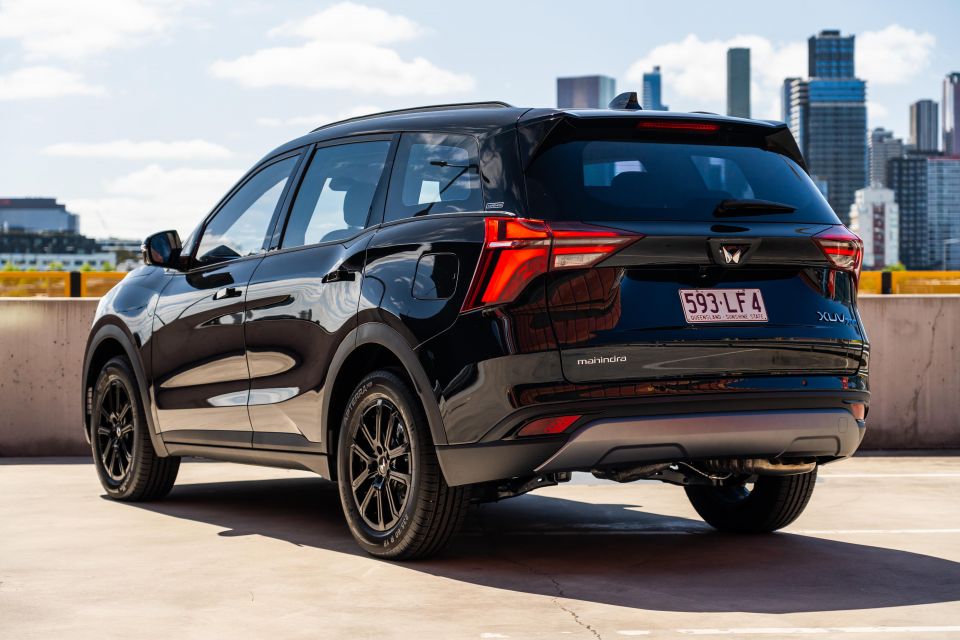

Quickly see how this car stacks up against its competition. Select any benchmark to see more details.
Where expert car reviews meet expert car buying – CarExpert gives you trusted advice, personalised service and real savings on your next new car.
The Mahindra XUV700 has taken a step to the dark side.

This new seven-seat mid-sized SUV is the latest model from the Indian carmaker to gain a blacked-out trim level. In this particular instance it’s a feature-packed new flagship variant designed to garner more attention alongside top-selling rivals like the Mitsubishi Outlander and Nissan X-Trail.
While its most direct competitor is the Chery Tiggo 8 Pro Max, it’s also a cut-price rival for the likes of the Hyundai Santa Fe, Kia Sorento, Skoda Kodiaq, Toyota Kluger, and Volkswagen Tiguan Allspace, among others.
While the Mahindra XUV700 Black Edition may seem like just a black-themed aesthetics package on the surface, there’s also a range of unique features.
These include black faux leather upholstery (the other variants only come with white faux leather), front seat ventilation, wireless Apple CarPlay and Android Auto connectivity, side mirror memory, and Dark Chrome interior highlights.
WATCH: Paul’s video review of the 2025 Mahindra XUV700 Black Edition
This new Black Edition variant is the biggest change the XUV700 has received since it launched in Australia early last year. Even the keen pricing for the two regular variants hasn’t changed since then.
With this in mind, how does the Mahindra XUV700 Black Edition stack up? Read along to find out.
The Black Edition is the new flagship variant of the relatively fresh Mahindra XUV700 lineup, which replaced the much less handsome XUV500, but it’s still one of the cheapest seven-seat SUVs currently on sale in Australia.
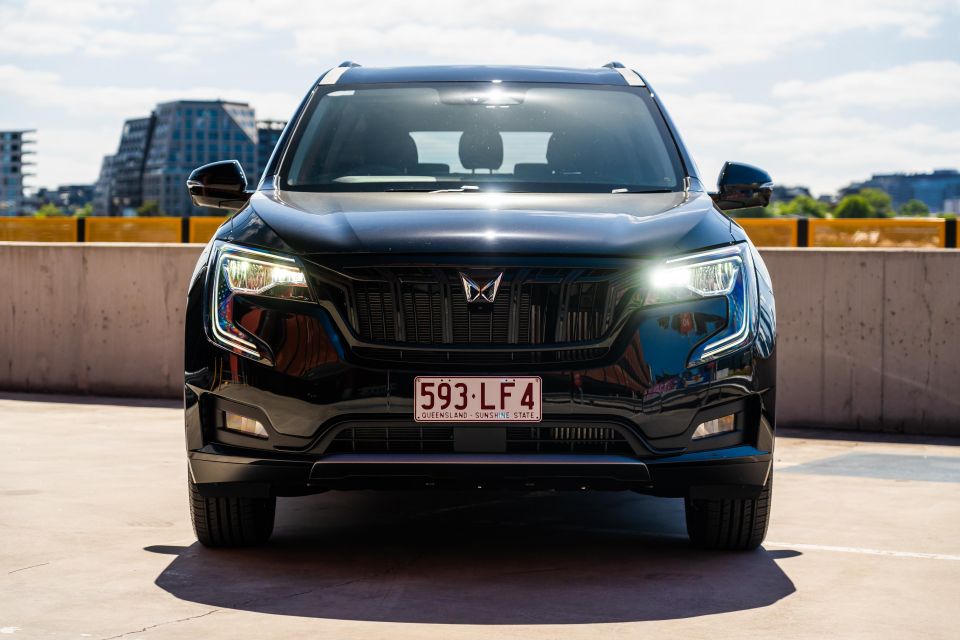
| Model | Drive-away pricing |
|---|---|
| 2025 Mahindra XUV700 AX7 | $36,990 |
| 2025 Mahindra XUV700 AX7L | $39,990 |
| 2025 Mahindra XUV700 Black Edition | $43,990 |
To see how the Mahindra XUV700 stacks up against its rivals, check out our comparison tool
Walking up to the Black Edition, you’re presented with pop-out door handles like those seen on the Hyundai Ioniq 5 and Kia EV6. They pop out when you unlock the car and retract when it’s locked to help create a sleek side profile.
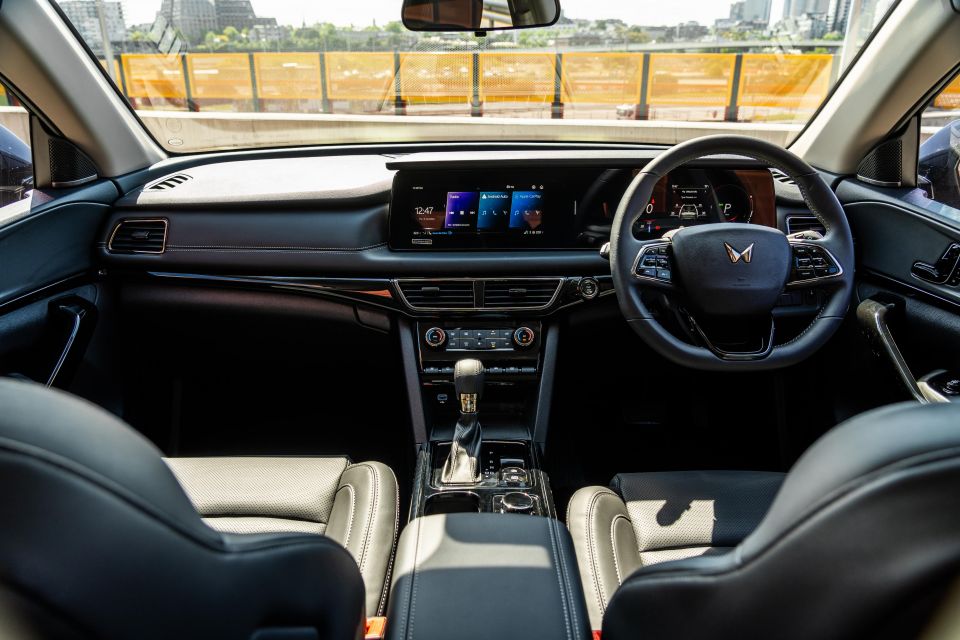
Hopping in, the first thing you’ll likely notice is how high the driver’s seat is. It’s almost too high, but many people who buy this type of vehicle want that ‘command’ driving position to give them the best view of their surrounds possible.
Unlike every other XUV700 variant on sale locally, the Black Edition (as its name suggests), comes with black faux leather upholstery. This is so much nicer and more family-friendly than the white faux leather in the AX7 and AX7L.
Another feature the Black Edition gains over other XUV700 variants is ventilated front seats, which is a Godsend on sweltering days. However, no variant offers seat heating, which is something virtually every top-spec mid-sized SUV offers in Australia.
The driver’s seat is comfortable enough, but it’s a little flat and doesn’t offer a great deal of lateral support in the bends. The seat itself can be electrically adjusted across six ways using Mercedes-Benz-like controls on the door panel.
Ahead of the driver is a rather chunky steering wheel that’s common with the Scorpio. It offers both tilt and reach adjustability, which is good because it allows for people of different heights and statures to get comfy behind the wheel.
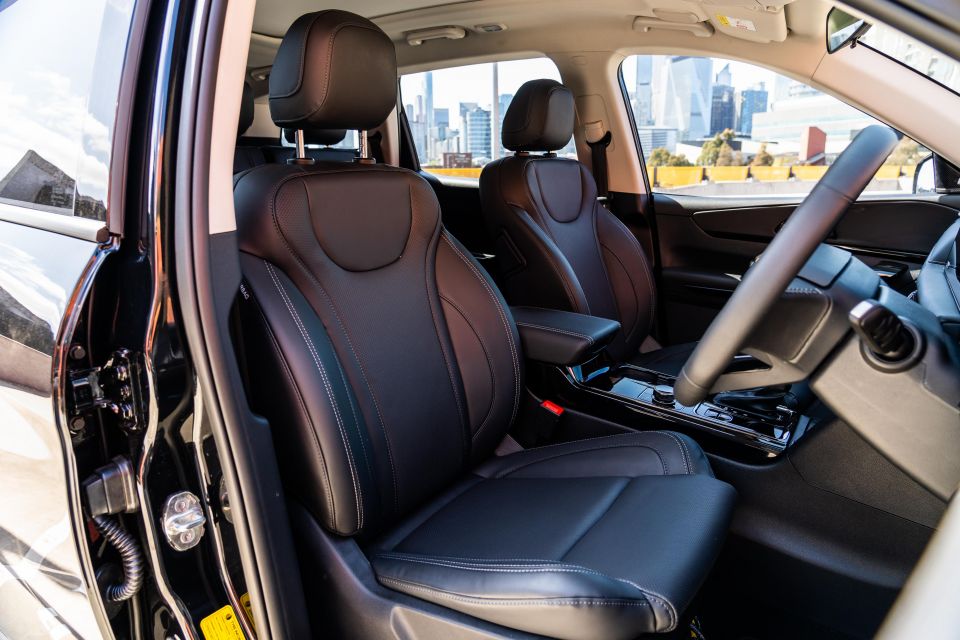
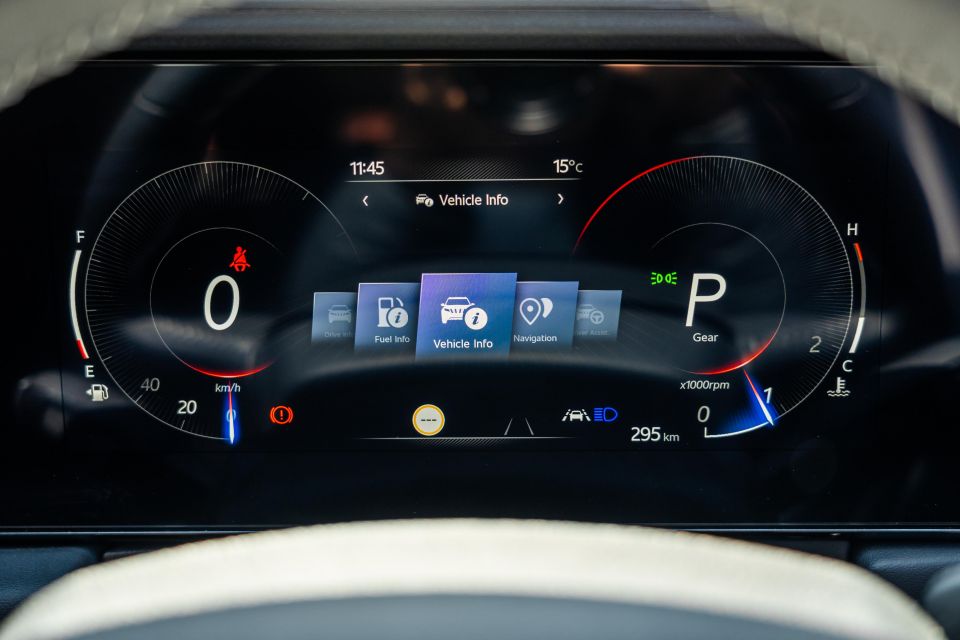
All the buttons on the steering wheel are logically placed, but with the piano-black finishes they get smudgy and gross even after a few interactions.
The Mercedes-Benz-like nature of the XUV700’s interior continues with the standard dual 10.25-inch screens for the digital instrument cluster and touchscreen infotainment system.
The digital instrument cluster looks flashy and high-resolution, and there are range of informative pages you can cycle through. One includes a navigation view that shows mapping routes when using smartphone mirroring. It can also be triggered to take up the entire 10.25-inch screen.
One of the few catches with this navigation view is that it only works with Apple Maps for iPhones and with Google Maps for Android phones. It also hides a range of other information like fuel range.
Another feature the digital instrument cluster has is a Blind-Spot View Monitor which, as with a number of high-spec Hyundai and Kia models, shows a live feed from a camera mounted under the side mirror when you switch on an indicator.
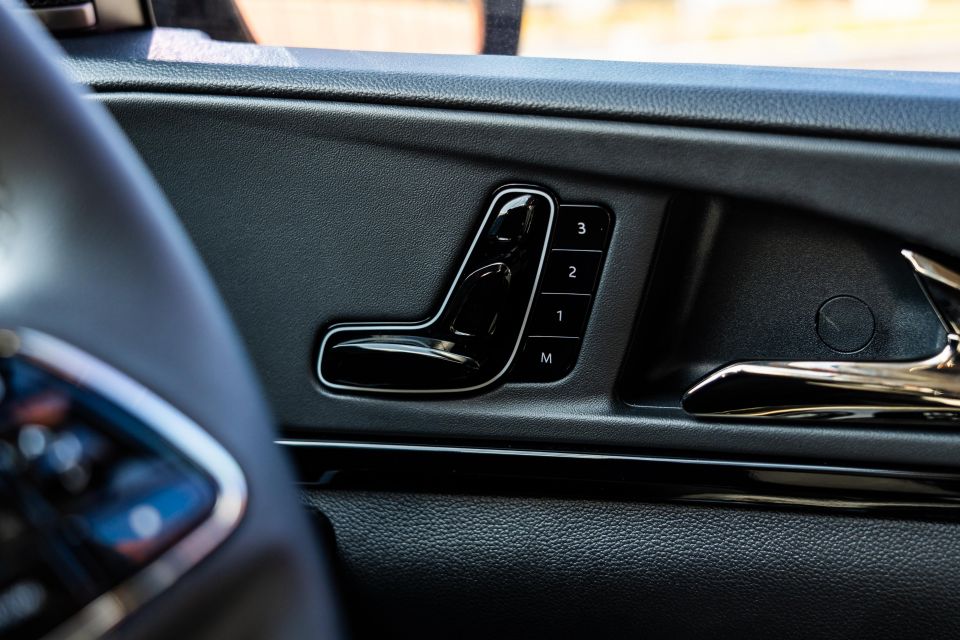
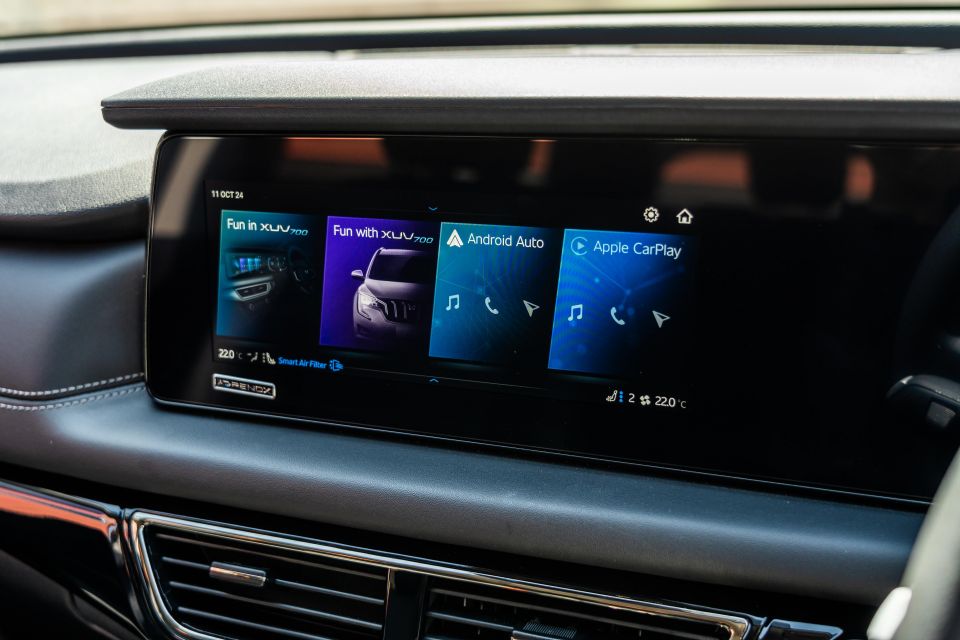
This is a great safety feature to have, even if in practice the camera’s frame rate can be a little jumpy and the resolution isn’t the flashiest.
Moving across, the touchscreen infotainment display is just as high-resolution as the digital instrument cluster. It’s a rather simple unit with easy to navigate menus.
In addition to touch inputs, you can also use a BMW-like rotary controller on the centre console to cycle through content or change the volume.
Unlike other XUV700 variants, the Black Edition comes with wireless Apple CarPlay and Android Auto in addition to wired connectivity for both smartphone-mirroring systems. It worked well for the most part during our time with the Mahindra, though it would occasionally have dropouts and glitches.
The wireless charger also cooked my phone a few times, leading me to eventually plug in a USB cable to ensure my phone battery stayed topped up during longer drives.
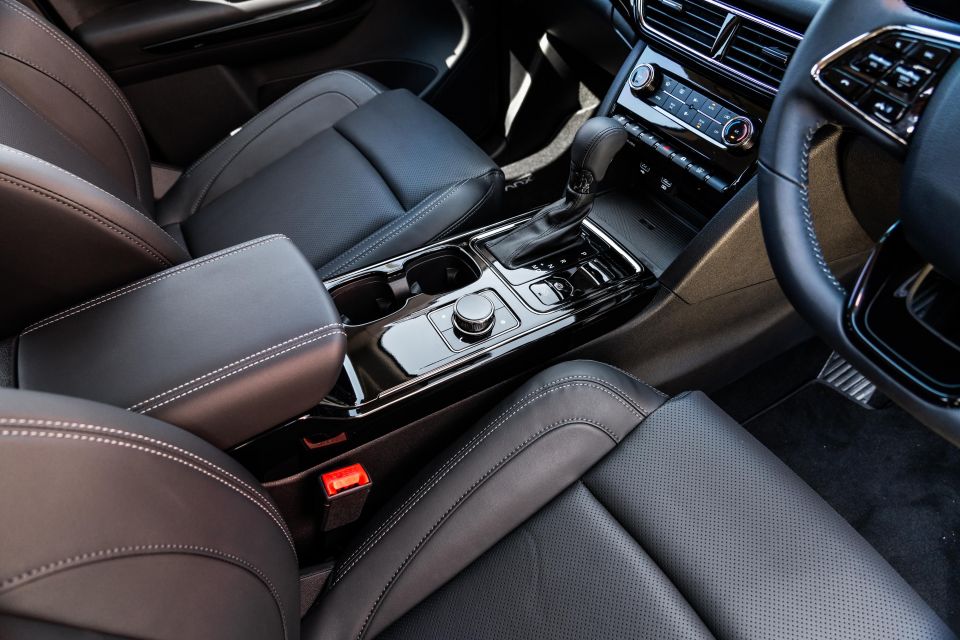
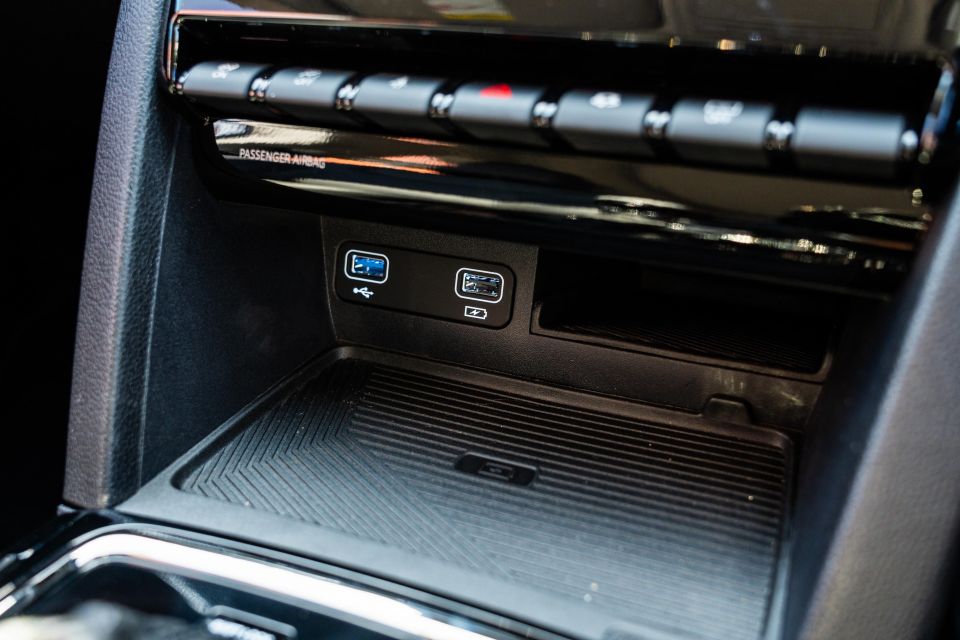
Some other minor infotainment glitches we experienced included the sound system volume readout getting stuck on 24, and the climate control pop-ups not actually popping up when changing certain settings.
Speaking of the climate controls, I’m very glad Mahindra has stuck with physical dials and buttons for the dual-zone climate control system. One catch, however, is that you need to look at the screen to see what temperature and fan speed it’s set at.
Something else I noticed is the auto climate control setting liked to have the fan blowing flat-out through the face-level vents, while also having the air recirculating, which made for an intoxicating plastic smell after a while.
Looking around the cabin, there’s a bit too much piano-black for our liking. It’s on the centre console, dashboard, and even on the door cards. We wish Mahindra would choose a different finish, because it gets so grimy so quickly, and also gets scratched when wiped clean.
All the black interior finishes are pretty dark, though thankfully there’s a light-coloured headliner to break it up, as well as a standard panoramic glass sunroof that makes the cabin feel airier. The latter can also tilt and slide open for extra air flow.
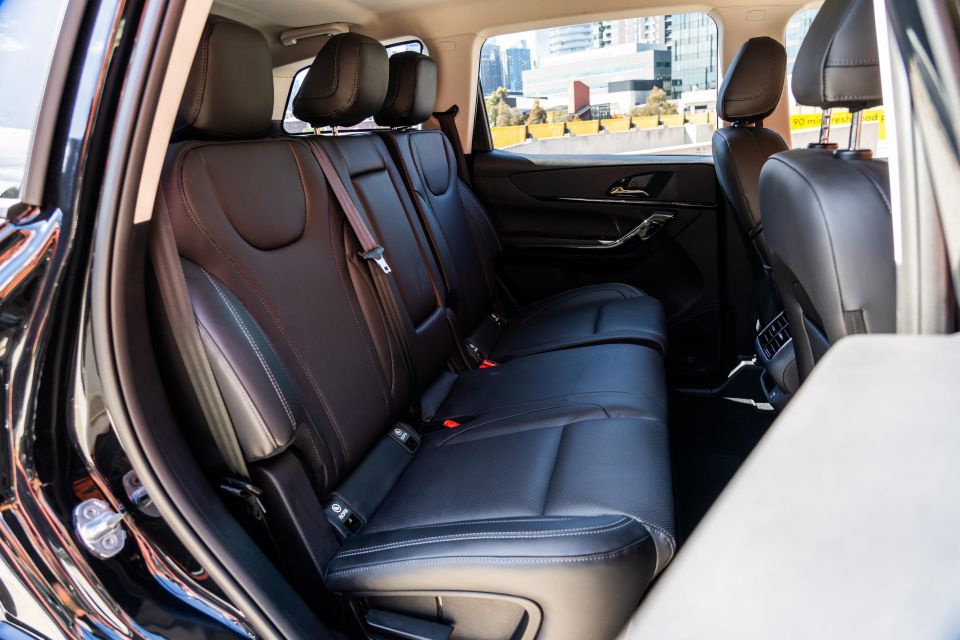
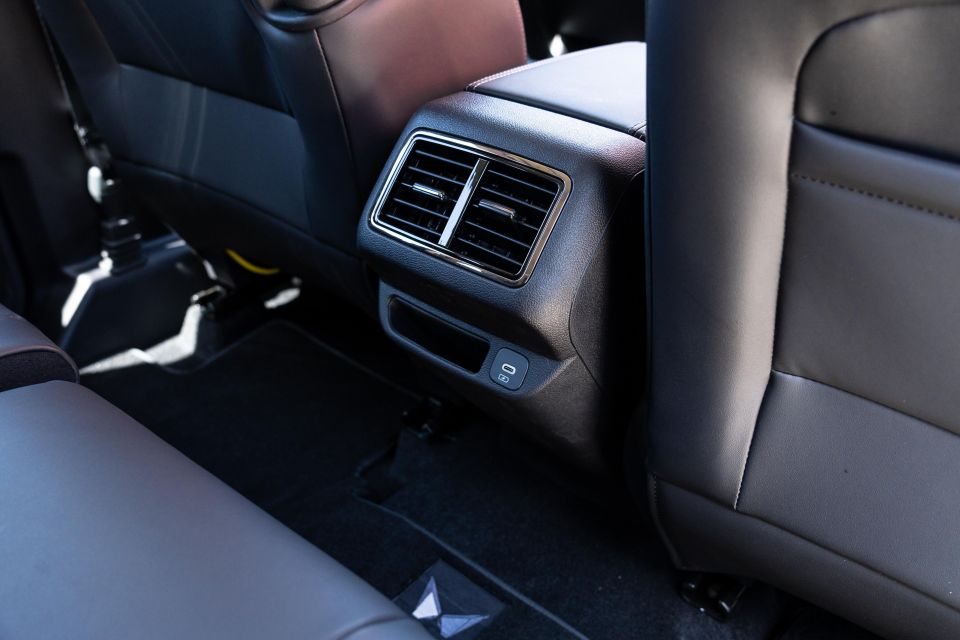
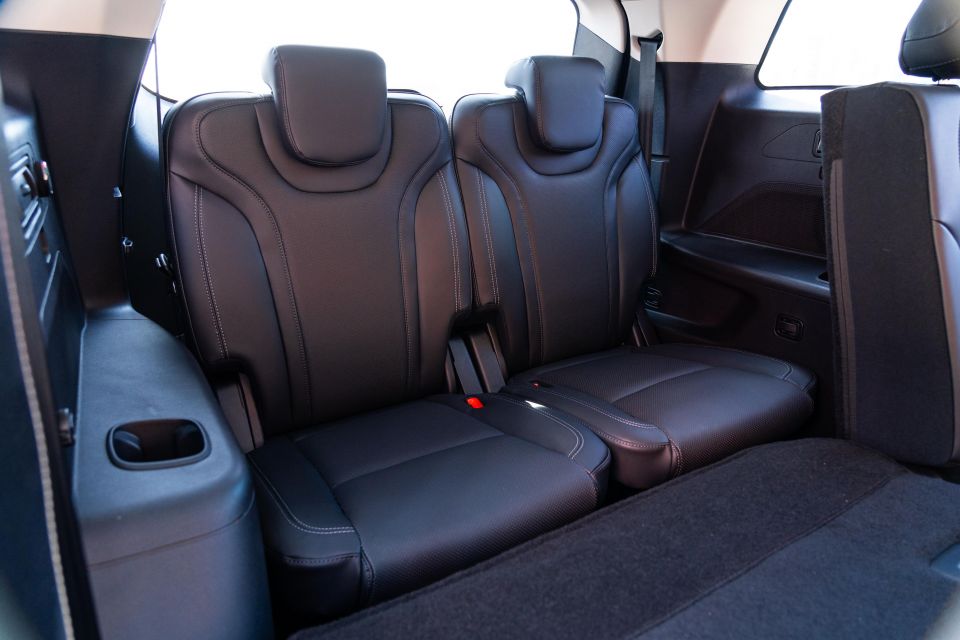
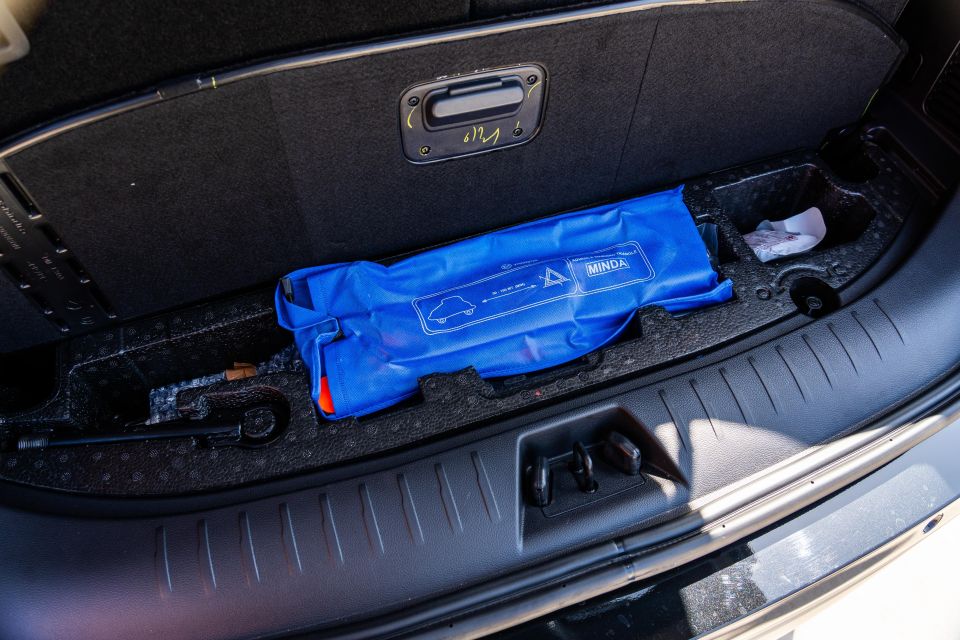
Moving to the second row, the bench seat doesn’t slide but offers a recline function. And at a leggy 182cm, I have plenty of leg room, toe room, headroom, and shoulder space behind my own driving position. Going three abreast is doable thanks to the virtually flat floor, too.
In terms of second-row amenity, there are air vents mounted on the back of the centre console, as well as a singular USB-C port.
Like a few medium SUVs on sale in Australia, the XUV700 comes standard with a third row of seating. There are two seats back there, but the space on offer makes it more of a kids-only zone, which is in line with rivals.
For the sake of it, however, we checked how well the third row copes with adults. It’s a mission and a half for me to get back there, and there isn’t enough headroom for me to hold my head upright.
Third-row passengers will appreciate the cup holders on each side though, as well as the air vents with dedicated blower control.
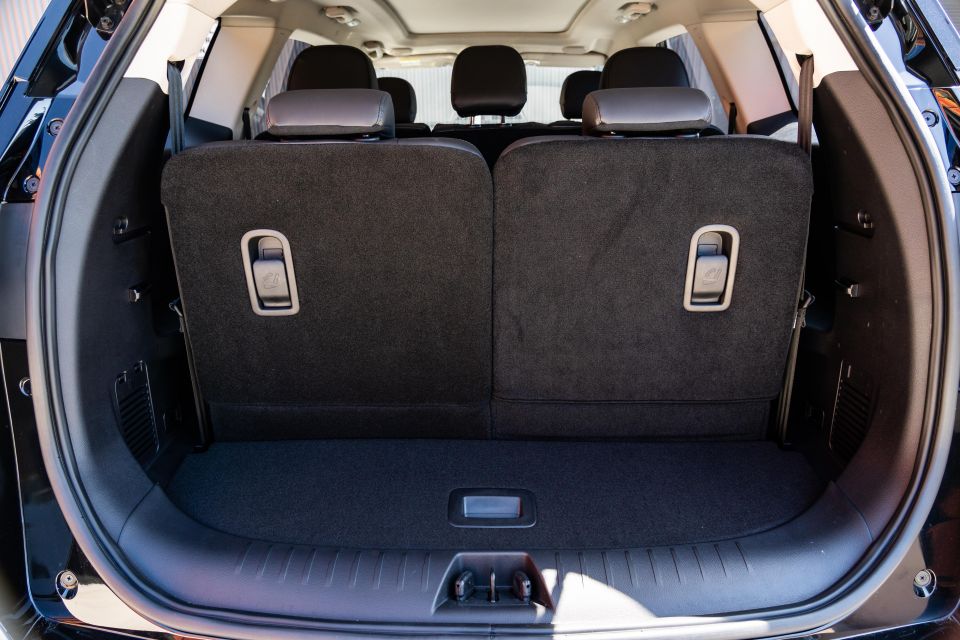
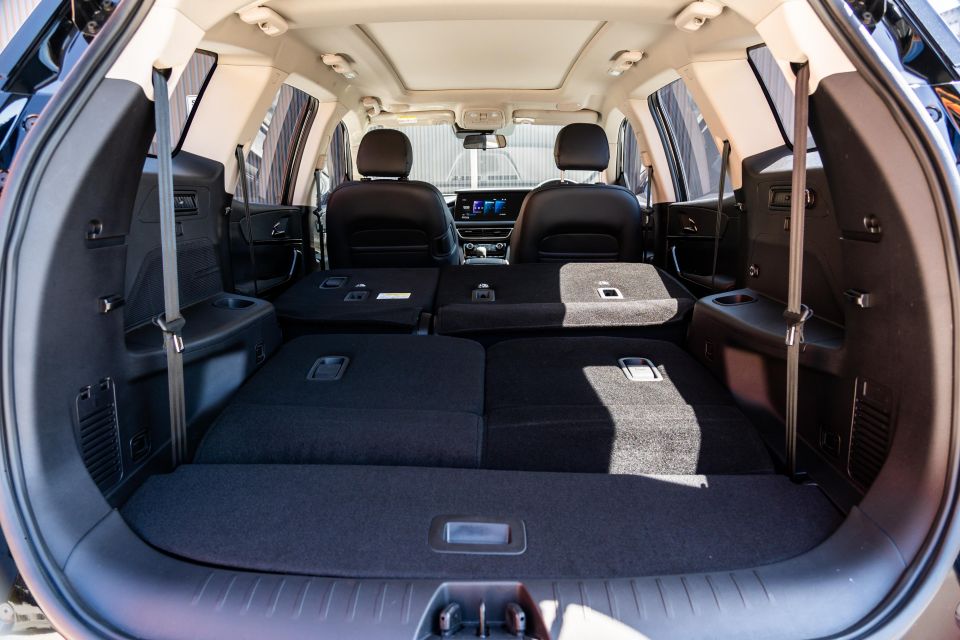
Mahindra hasn’t quoted boot capacities for the XUV700, but like the Scorpio there’s virtually no cargo space with all three rows upright. You can fit a grocery bag or two if you’re lucky.
Unlike the Scorpio, however, the XUV700’s third row folds away to create an almost flat boot floor. There’s actually a fair bit of usable space when the third row of seats are folded away too.
Thankfully, the XUV700 comes with a full-sized steel spare wheel, which is a critical feature for many rural and regional buyers, and one that’s lacking even in some SUVs these days.
| Dimensions | Mahindra XUV700 |
|---|---|
| Length | 4695mm |
| Width | 1890mm |
| Height | 1755mm |
| Wheelbase | 2750mm |
To see how the Mahindra XUV700 stacks up against its rivals, check out our comparison tool
The entire Mahindra XUV700 range is powered by a 2.0-litre four-cylinder turbo-petrol engine driving the front wheels only. Diesel power and all-wheel drive are available in other markets, along with the option of a manual transmission.
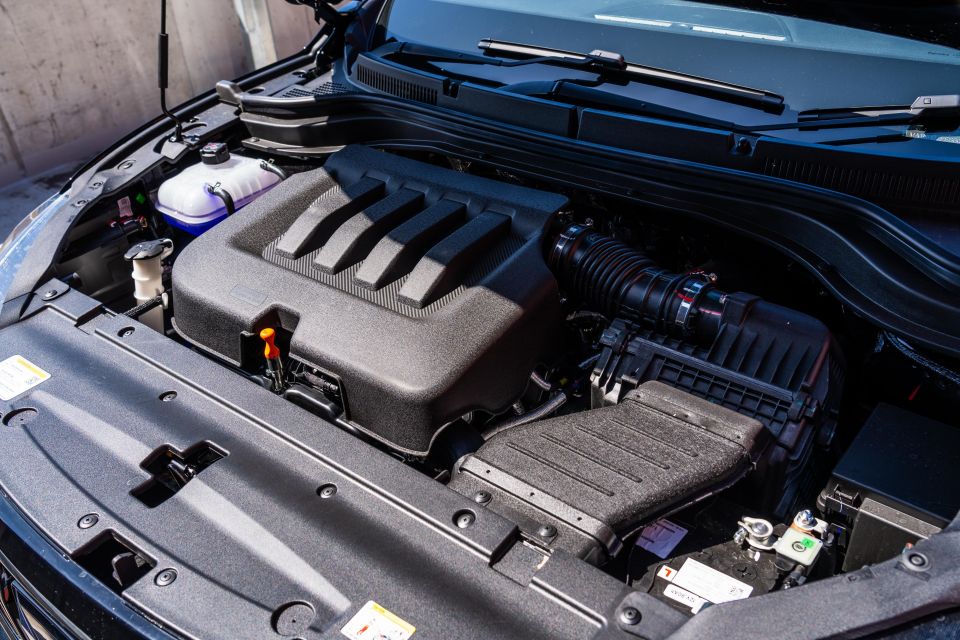
| Specifications | Mahindra XUV700 |
|---|---|
| Engine | 2.0L 4cyl turbo |
| Power | 149kW @ 5000rpm |
| Torque | 380Nm @ 1750-3000rpm |
| Transmission | 6-speed auto |
| Driven wheels | FWD |
| Weight | 1835kg |
| Fuel economy (claimed) | 8.3L/100km |
| Fuel economy (as tested) | 7.7L/100km (1840km) |
| Fuel tank capacity | 60L |
| Fuel requirement | 91 RON |
| Braked tow capacity | 1500kg |
Our observed 7.7L/100km fuel consumption figure is hardly class-leading, and it included plenty of highway and freeway journeys over the course of a month. Some of this was completed by our video team on their way between Melbourne and Lang Lang for testing.
To see how the Mahindra XUV700 stacks up against its rivals, check out our comparison tool
Even though I’ve driven a fair few XUV700s now, every time I hop back in and start it up I subconsciously expect to hear a diesel clatter.
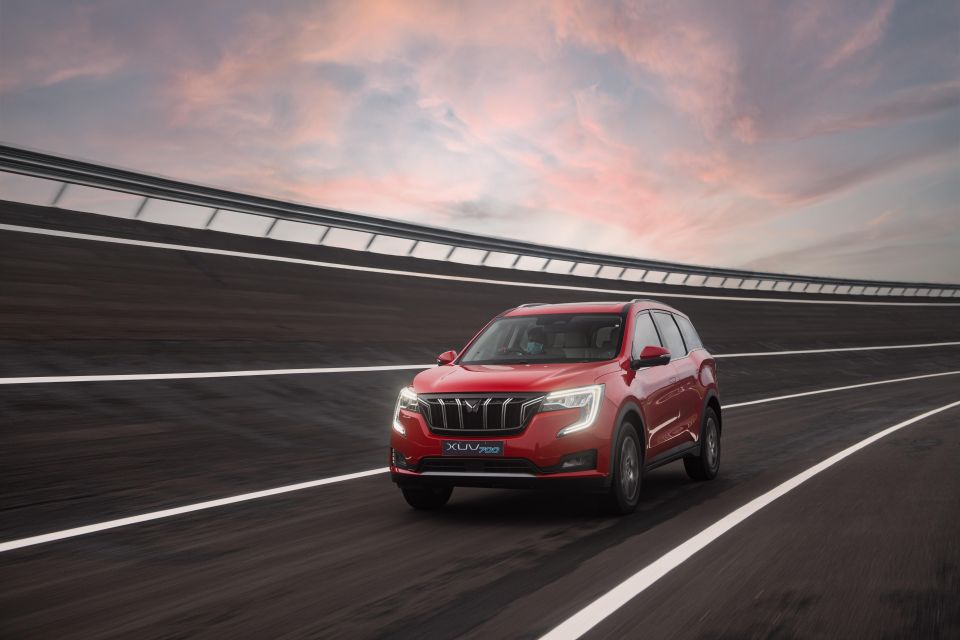
What you do hear, however, is a sweet petrol-engine rev flare and then a subdued idle note. Setting off when the engine is cold can tend to see the engine surge a fair bit in first gear, which made me jump for the brake pedal a couple of time. It doesn’t take long for the engine to warm up, however, when this strange surge feeling goes away.
The XUV700’s 2.0-litre four-cylinder turbo-petrol engine provides enough grunt in everyday scenarios. You’re able to get away from the lights with ease, but don’t expect to win the traffic light grand prix in this 1.8-tonne seven-seat SUV.
The engine rev out a little in the two lower gears, but once you get into third gear and beyond the engine revs settle down. Peak torque comes on tap from as low as 1750rpm and the car leans into this as much as possible.
It’s surprising how quickly the car can accelerate without too many revs on board. It’s feels much more like a turbo-diesel rather than a turbo-petrol. This makes for a comfortable, effortless and stress-free driving experience.
But the XUV700 doesn’t respond well to sharp accelerator jabs, taking a second or two for the turbo to spool up and the transmission to drop a gear. It’s much more comfortable being driven with docile throttle inputs.
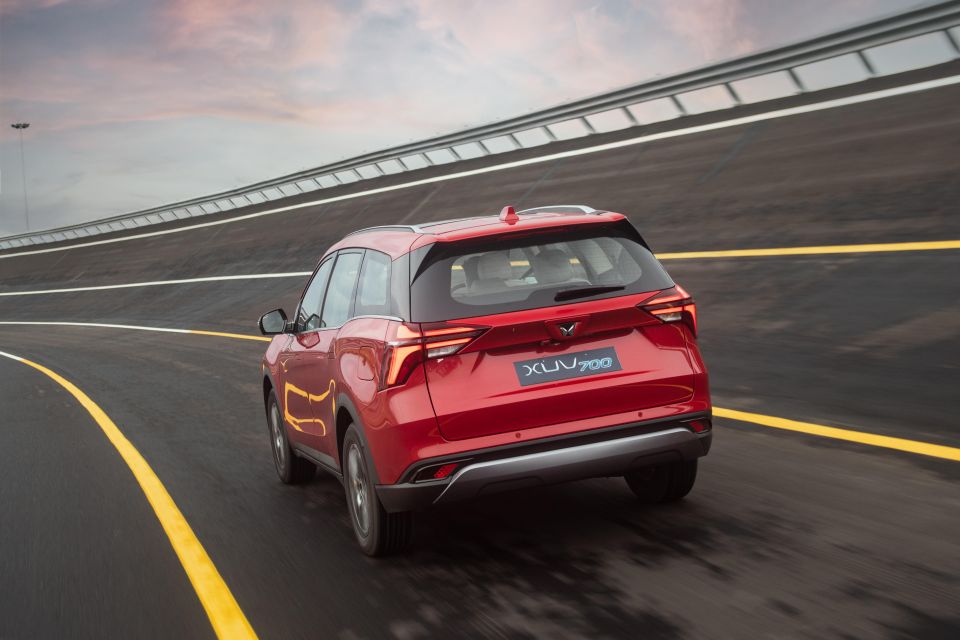
This car comes with an engine idle stop/start system that activates when you’re stationary. It’s not the most sophisticated system I’ve experienced as it cuts out the air-conditioner when active, and at night time the headlights flicker for a second when the engine restarts.
I can see why many people turn off this function in their cars, as it can sometimes be a little intrusive and annoying, even if it helps to reduce fuel use.
At lower speeds the car feels more agile that you’d initially expect. This is due in part to the incredibly light steering that makes it easy to twirl the wheel and change directions. A downside of this, however, is steering that lacks a bit of feedback.
As standard, the XUV700 Black Edition comes with a surround-view camera that has decent but not outstanding quality, as well as only rear parking sensors.
Despite feeling agile, this car isn’t overly dynamic. It throws around its 1.8-tonne mass a fair bit in corners, and that isn’t helped by being front-wheel drive. But in all fairness, this is a seven-seat SUV and not a hot hatch.
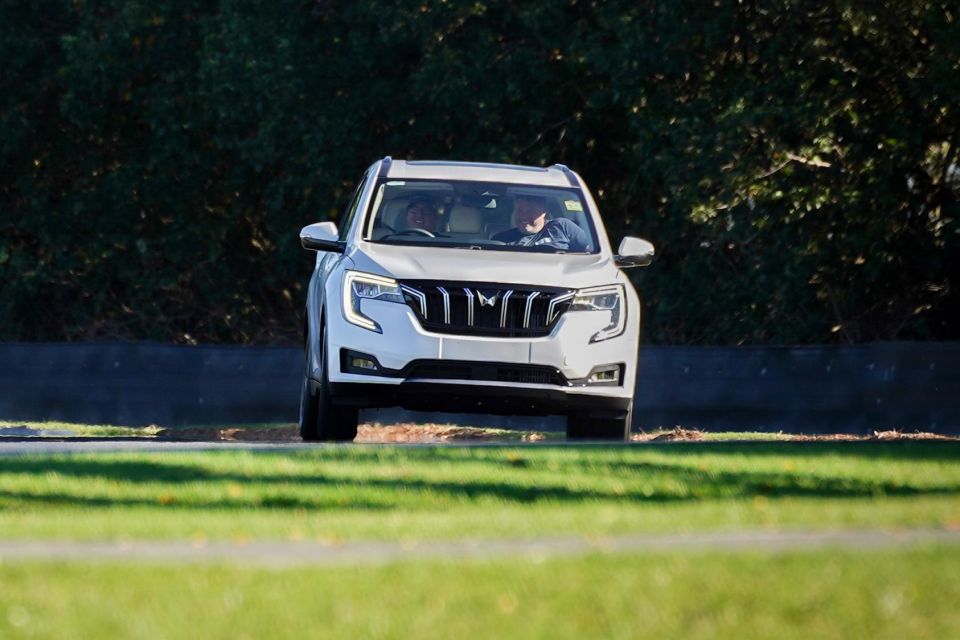
Pimply metropolitan roads is where the XUV700’s suspension shines the most. There’s a MacPherson strut front and multi-link rear setup, along with the company’s so-called Frequency Selective Dampers.
The latter allows the car to remain composed over a singular speed bump with high damping force, but can also delivers a comfortable ride on bumpier roads via low damping force.
For the most part, it feels like the car floats along urban and metropolitan roads, soaking up imperfections well. You can hear what the suspension is doing but it doesn’t translate into the cabin, which is a positive for occupants.
It’s easy to build up speed in the XUV700, the turbo-petrol engine in which makes it well and truly up to the task of highway touring. At around 95km/h, the transmission slots into sixth gear and that keeps the revs below 2000rpm, which is great for cabin ambience.
What isn’t great, however, is that there’s a fair bit of wind noise emanating from the side mirrors. This can be fixed by turning up the volume on the great 12-speaker Sony sound system.
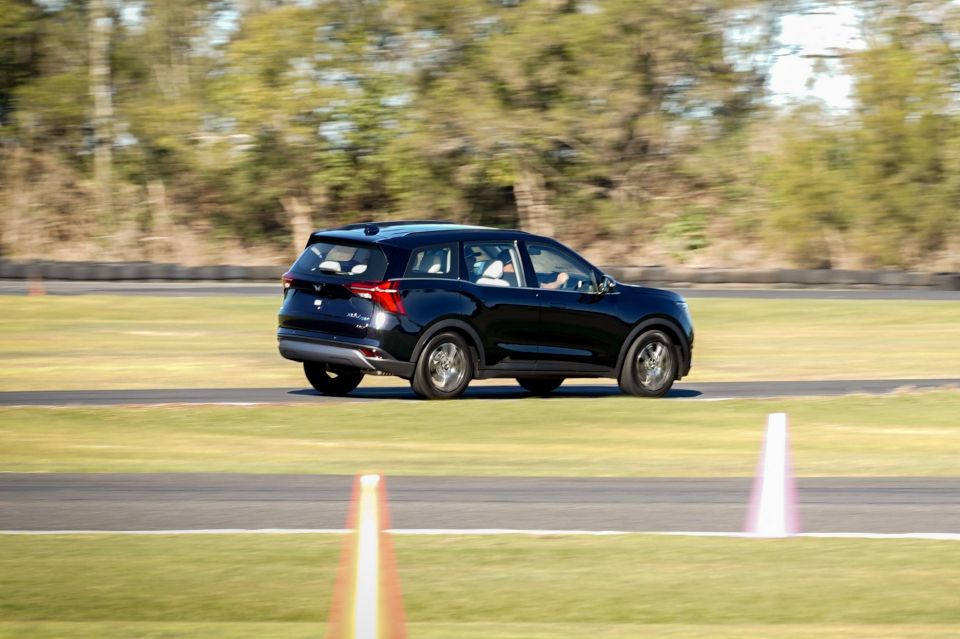
Where expert car reviews meet expert car buying – CarExpert gives you trusted advice, personalised service and real savings on your next new car.
Like I mentioned before, this car doesn’t respond well to sharp throttle inputs. With this in mind, you do need to plan your overtaking manoeuvres as the XUV has to think before dropping a gear. Once this happens though, it has plenty of oomph to get moving.
The suspension setup feels purpose-built for highway and freeway touring, because when the going gets really tough on single-lane country roads it feels like the suspension gets a little overwhelmed and doesn’t know whether to stiffen or soften the dampers.
When travelling along at 100km/h on undulating, pot-holed country roads, you feel every bump and the Mahindra also feels overly soft at the rear. A couple of times on those roads with passengers in the second and third rows, they said they started to get a bit car-sick from all the movement.
Another thing I noticed while travelling at higher speeds for extended periods of time is the fuel range computer changes rather rapidly. At one point the low-fuel warning came on, indicating I could only travel around 50km before the petrol ran out, but when I filled up the tank I still had 13L of fuel left in it.
On the safety front, the XUV700 is pretty fully loaded. It comes with an adaptive cruise control system that reacts in a measured way to cars ahead. But an annoyance at higher speeds is that it struggles to stay at the set speed, stabbing at the throttle or brake to maintain it.
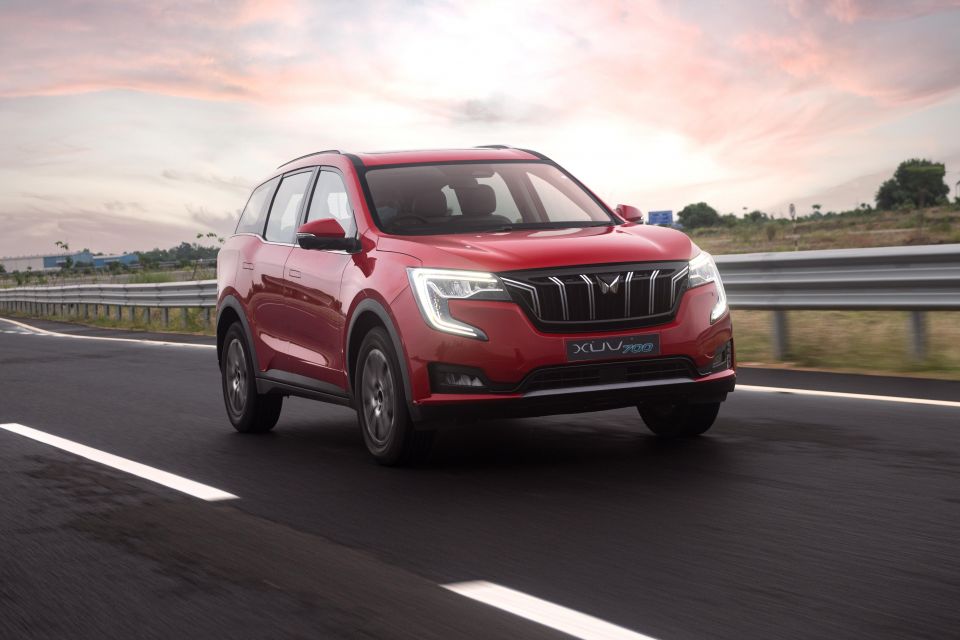
There are three different options to change how quickly the car accelerates up to the set speed, though even in its slowest setting it can jerk around like a taxi driver who stabs at the throttle.
Another strange quirk is that while there are all the requisite buttons for the cruise control, there’s no actual cancel button. This means if you want to cancel the cruise and then resume it at the previously set speed you need to press the brake pedal.
I didn’t want to do that though, so I stuck with turning off cruise control completely and then set the speed again manually each time.
The lane-keep assist is pretty accurate on clearly marked roads, though on tight country highways and single-lane country roads the system can lightly yank at the wheel when it doesn’t need to. I’ve experienced much worse in other cars, however.
There’s also a Smart Pilot function that essentially combines adaptive cruise control and lane centring functions. On highways and freeways it works perfectly at gently steering the car within the marked lines, reducing driver fatigue over long journeys.

Thankfully, if you don’t like how hands-on the steering assistance system is with Smart Pilot turned on, you can switch it off using a menu in the digital instrument cluster.
Lastly, the XUV700 Black Edition comes with bright LED headlights, which are great for dimly lit rural and regional areas. Above 80km/h there’s a boost function for the high-beams, which noticeably makes it easier to see further down the road.
On test here is the new flagship XUV700 Black Edition variant.
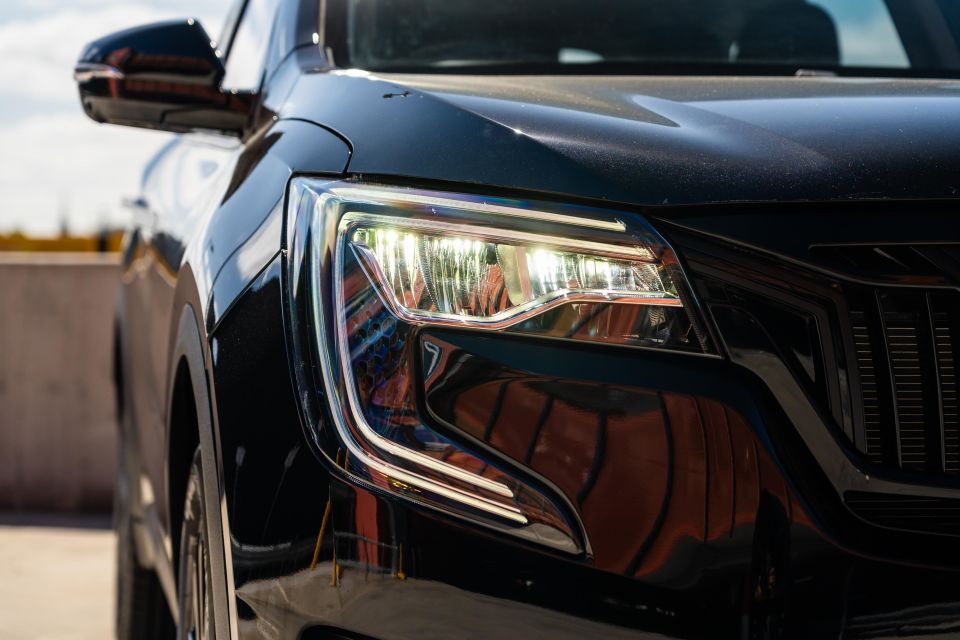

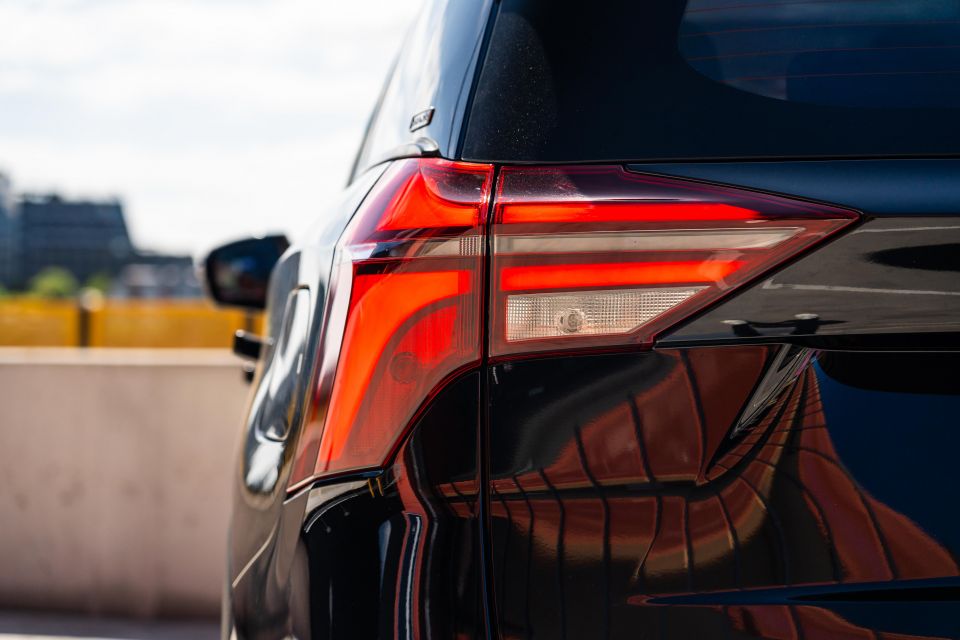

2025 Mahindra XUV700 highlights:
XUV700 AX7L adds:
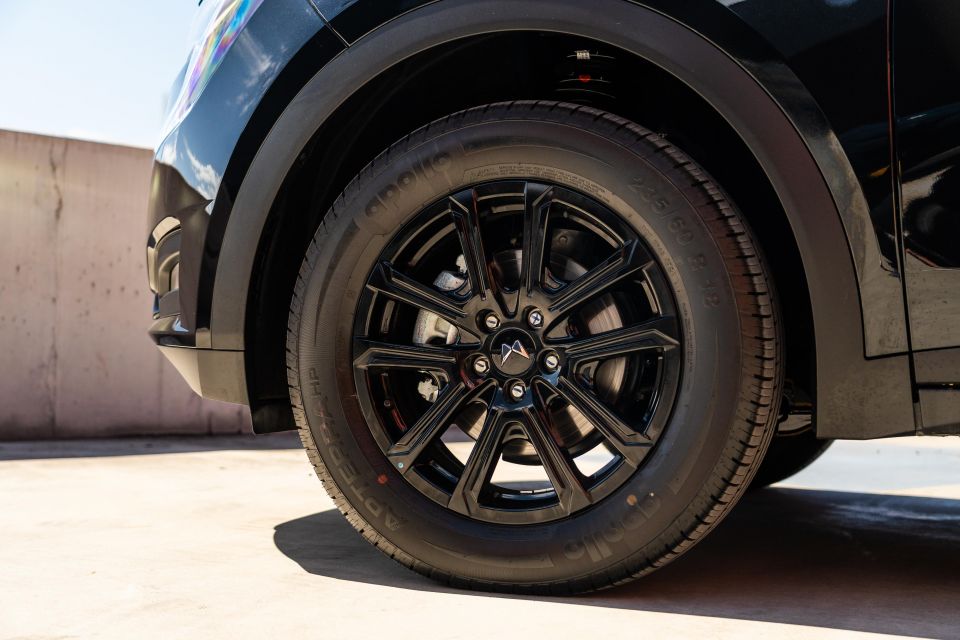

XUV700 Black Edition adds:
To see how the Mahindra XUV700 stacks up against its rivals, check out our comparison tool
The Mahindra XUV700 has yet to be assessed by ANCAP.
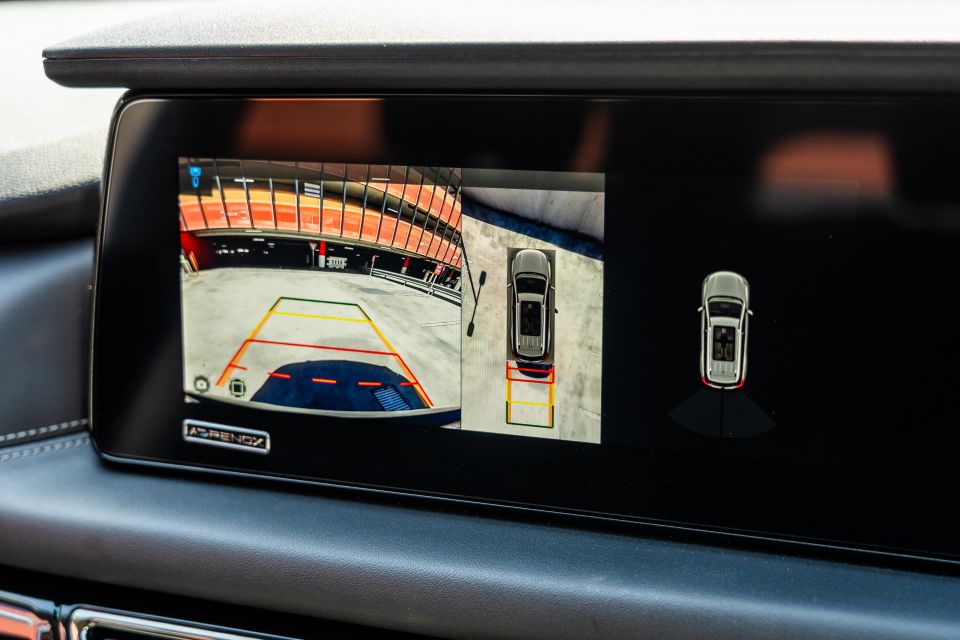
Standard safety equipment includes:
AX7L adds:
The Mahindra XUV700 is backed by a generous seven-year, 150,000km warranty including seven years of roadside assist. Servicing is required every 12 months or 15,000km.
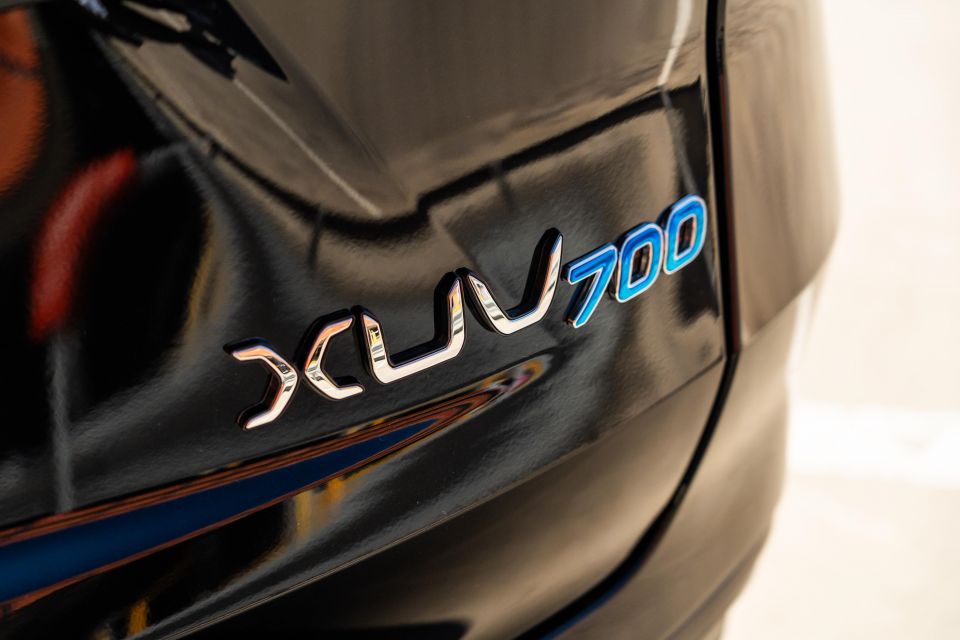
| Running costs | Mahindra XUV700 |
|---|---|
| Warranty | 7 years, 150,000km |
| Roadside assistance | 7 years |
| Service intervals | 12 months or 15,000km First service required at 1 month or 1500km Second service required at 12 months or 10,000km |
| Capped-price servicing | 4 years |
| Total capped-price service cost | $1781 |
To see how the Mahindra XUV700 stacks up against its rivals, check out our comparison tool
The Mahindra XUV700 is oft-forgotten as one of the most affordable seven-seat SUVs available in Australia, but that doesn’t mean it should be overlooked.
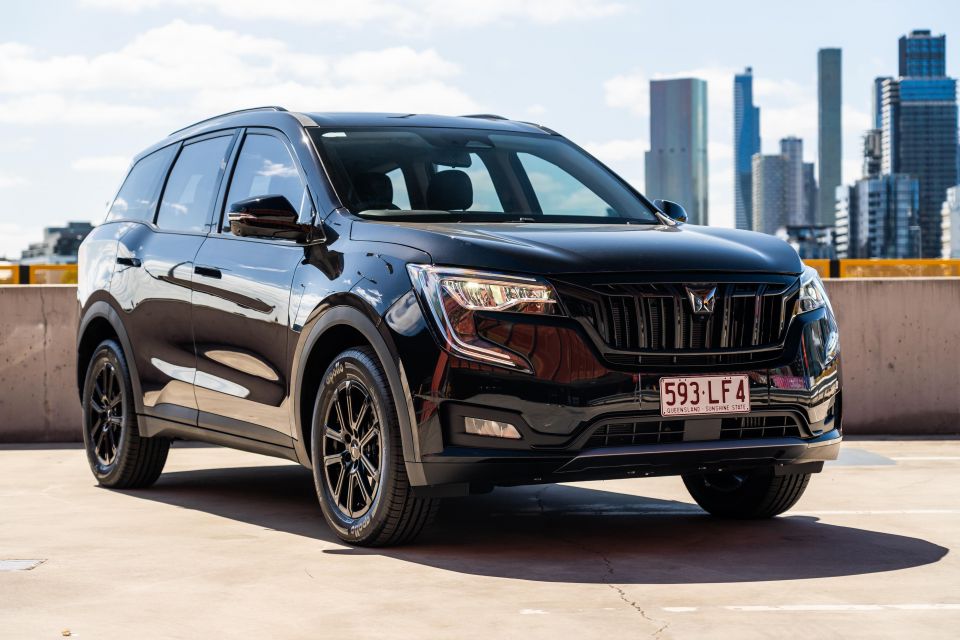
In this new top-shelf Black Edition guise, it’s fitted with all the bells and whistles you could hope for, at a price tag that’s very appealing. For $43,990 drive-away, you can’t even get a base Mitsubishi Outlander or Nissan X-Trail seven-seater.
Even compared to other budget-friendly XUV700 variants, the Black Edition is a sweeter package if you can live with the dark Napoli Black exterior paint. That is thanks primarily to the black faux leather upholstery, which is considerably more family-friendly than the white faux leather that’s compulsory in other variants.
It’s also nice that the front seats gain ventilation, especially as we’re leading into a sweltering Australian summer, and that the convenience of wireless Apple CarPlay and Android Auto connectivity is finally available.
While the car has all these high-tech functions, the infotainment glitches and smartphone mirroring dropouts can put a dampener on the overall experience. The relatively high driving position and ultra-light steering also don’t feel overly natural in such a large vehicle.
Another consideration is that the XUV700 range is still only offered locally with turbo-petrol power and front-wheel drive. It would be interesting to see if the availability of turbo-diesel and/or all-wheel drive options attracted more customers to this well-priced, underrated Indian-made seven-seat SUV.
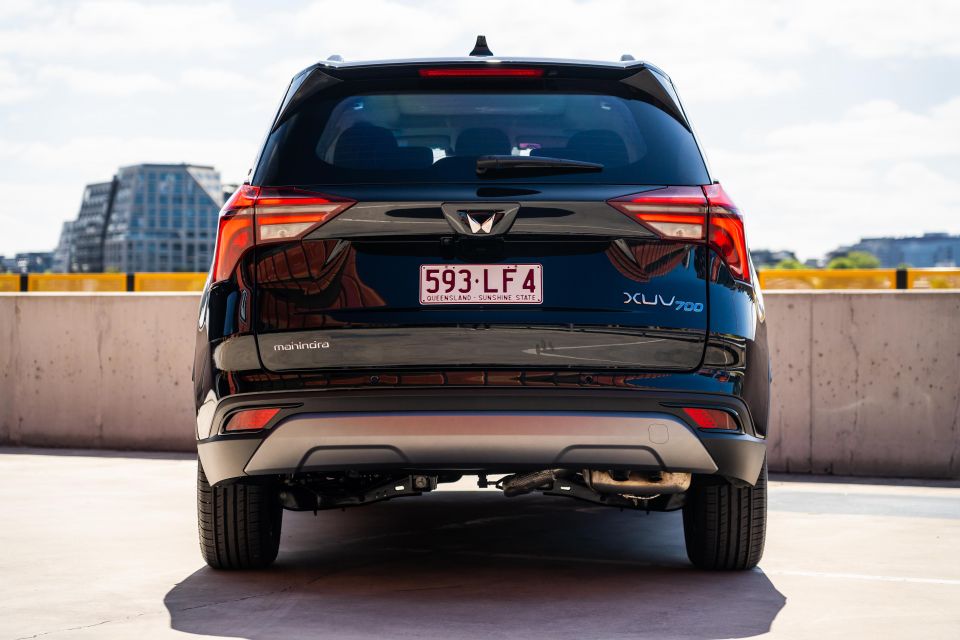
Interested in buying a Mahindra XUV700? Get in touch with one of CarExpert’s trusted dealers here
Click the images for the full gallery
Where expert car reviews meet expert car buying – CarExpert gives you trusted advice, personalised service and real savings on your next new car.
Jack Quick is an automotive journalist based in Melbourne. Jack studied journalism and photography at Deakin University in Burwood, and previously represented the university in dance nationally. In his spare time, he loves to pump Charli XCX and play a bit of Grand Theft Auto. He’s also the proud owner of a blue, manual 2020 Suzuki Jimny.


Andrew Maclean
1 Month Ago
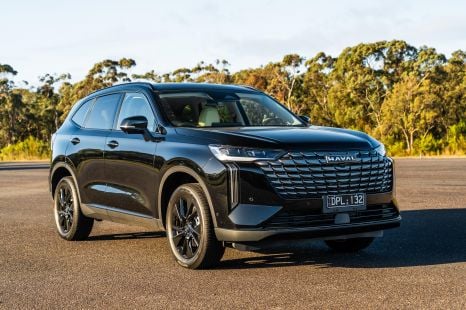

Josh Nevett
1 Month Ago
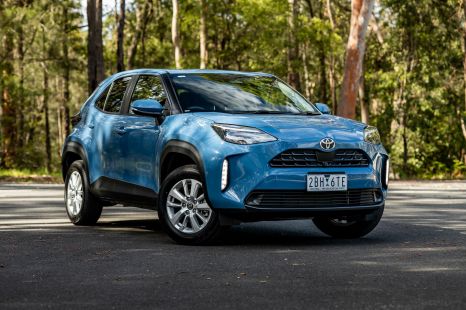

Matt Campbell
25 Days Ago
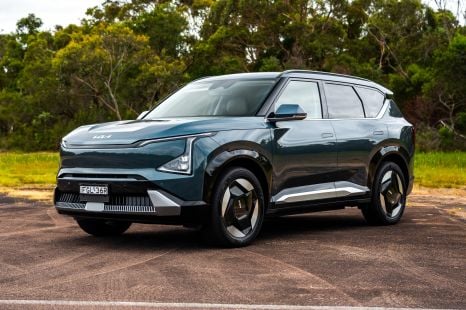

James Wong
18 Days Ago
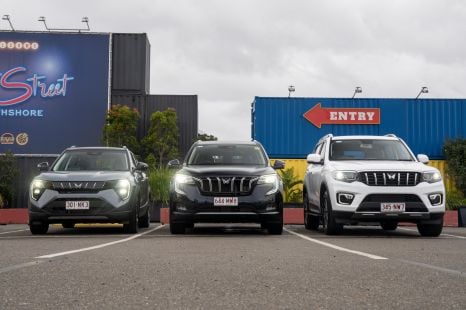

CarExpert.com.au
11 Days Ago
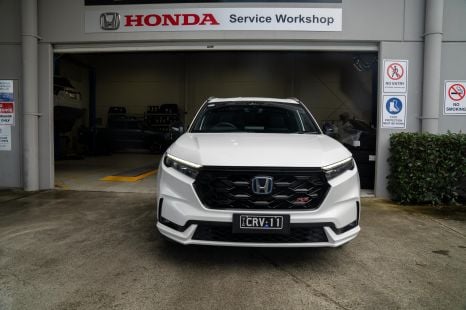

CarExpert.com.au
10 Days Ago